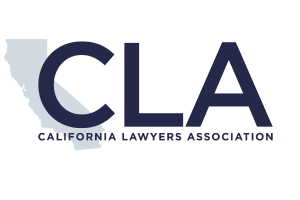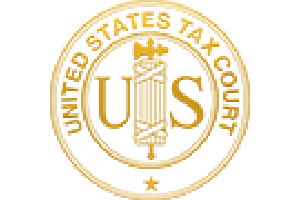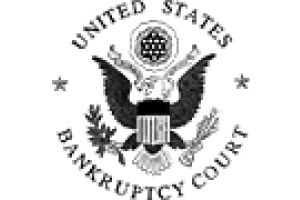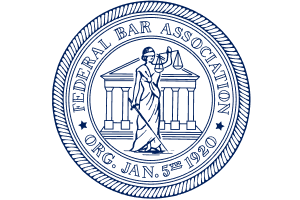Getting Results
Defending Tax Preparers and CPAs – Penalties & Tax Practice
The Internal Revenue Service (IRS) and the U.S. Department of Justice (DOJ) have intensified efforts to regulate tax return preparers and Certified Public Accountants (CPAs), targeting those accused of wrongful conduct that threatens tax compliance. Allegations ranging from tax violations of 26 U.S.C. § 6694 (understatement of tax liability) to misconduct under Treasury Circular 230 can lead to severe consequences, including tax preparer penalties, injunctions under 26 U.S.C. § 7407, or disbarment from tax practice before the IRS. Our tax attorneys in Los Angeles specialize in defending tax preparers and CPAs against these IRS enforcement actions using our experience in recent enforcement trends, and strategic defenses to preserve your tax preparation practice.
Types of Wrongful Conduct Leading to IRS Investigations: The IRS and DOJ pursue tax preparers and CPAs for various forms of tax misconduct, often alleging patterns that justify revoking tax practice privileges. Below is a table summarizing common allegations and their legal basis:
| Type of Wrongful Conduct | Legal Basis | Potential Consequences |
|---|---|---|
| Understatement of Tax Liability | 26 U.S.C. § 6694(a) & (b) | Penalties ($1,000 for unreasonable positions, $5,000 for willful/reckless conduct); injunction under § 7407 |
| Failure to Exercise Due Diligence | Treasury Circular 230, § 10.22 | Suspension or disbarment from IRS practice; monetary penalties |
| Misrepresentation of Credentials | 26 U.S.C. § 7407(b)(1)(B); Circular 230, § 10.51 | Injunction barring practice; disciplinary action by IRS Office of Professional Responsibility (OPR) |
| Promoting Abusive Tax Schemes | 26 U.S.C. §§ 6700, 6701, 7407 | Civil penalties; injunctions; criminal prosecution in severe cases |
| Failure to Comply with Preparer Requirements | 26 U.S.C. § 6695 (e.g., failing to sign returns, provide PTIN) | Penalties ($50-$500 per violation); injunction under § 7407 |
| Fraudulent or Deceptive Practices | 26 U.S.C. § 7407(b)(1)(D); Circular 230, § 10.51 | Permanent bar from practice; criminal penalties under 18 U.S.C. § 1001 |
| Willful Violation of Tax Laws | 26 U.S.C. § 7206; Circular 230, § 10.51 | Criminal prosecution; disbarment from IRS practice |
These violations can trigger IRS investigations, civil complaints, or referrals to the DOJ for injunctions or criminal tax investigations. For example, § 6694 penalties often arise from overstated deductions or improper credits, while Circular 230 violations may stem from inadequate client verification or unethical conduct.
IRS and DOJ Enforcement Mechanisms: The IRS employs several tools to discipline tax preparers and CPAs, with the goal of protecting the tax system’s integrity:
- Civil Penalties: Under § 6694, preparers face penalties for unreasonable positions or willful conduct. Section 6695 imposes fines for procedural violations like failing to retain records.
- Injunctions (26 U.S.C. § 7407): The DOJ may seek court-ordered injunctions to restrict or prohibit preparers from practicing if misconduct is recurrent or egregious. Courts require evidence of a likelihood of continued violations.
- Disciplinary Actions by OPR: Under Circular 230, the IRS Office of Professional Responsibility can suspend or disbar CPAs and other preparers for unethical or incompetent conduct.
- Criminal Prosecution: Willful violations, such as aiding in tax evasion (§ 7206) or promoting abusive shelters (§ 6700), may lead to criminal charges, fines, or imprisonment.
Recent enforcement trends show the IRS targeting preparers involved in fraudulent refund schemes, misclassified employment taxes, or abusive trusts. The DOJ has also pursued injunctions in cases like United States v. Villanueva (ongoing, alleging fraudulent returns) and United States v. Paula Olivett (injunction for § 6694 violations).Recent Case Law and Enforcement Trends (2022–2025)The following table highlights key cases illustrating IRS and DOJ actions against tax preparers:
| Case | Jurisdiction | Allegations | Outcome | Key Takeaway |
|---|---|---|---|---|
| United States v. Paula Olivett | Florida | § 6694 violations; fraudulent returns | Injunction sought under § 7407 | Pattern of misconduct justified broad relief. |
| United States v. Villanueva | Texas | Repeated fraudulent returns | Ongoing injunction request | Emphasizes IRS focus on systemic fraud. |
| Michigan Case (2023) | Michigan | § 6694(a)/(b) violations; reckless conduct | Injunction granted | Courts uphold injunctions for recurring violations. |
| United States v. Stenline (2011, cited 2025) | Texas | § 6694 violations | Injunction denied | Good-faith efforts and lack of recurrence can defeat injunction. |
| CRAT Tax Shelter Case (2022) | California | Abusive trust schemes; § 6694 violations | Injunction under §§ 7402, 7407 | Promoters face severe penalties for shelters. |
| Buddhu Case | Connecticut | Understated liabilities | § 6694 penalties; injunction | Courts enforce penalties for lack of due diligence. |
These cases demonstrate the IRS’s aggressive stance but also highlight opportunities for tax defense when violations are isolated or good faith is evident.
Tax Preparation Defense Strategy:
- Comprehensive Case Analysis
Review all returns, workpapers, and client communications to assess compliance with standards like substantial authority or reasonable basis under § 6694. We identify errors, misinterpretations, or mitigating factors. - Challenging IRS Allegations
- Unreasonable Positions: Argue that tax positions met legal thresholds (e.g., substantial authority or disclosed reasonable basis).
- Willful Conduct: Demonstrate errors were unintentional, relying on client data or ambiguous law, as in Stenline.
- Injunction Necessity: Show no likelihood of recurrence through remedial actions, like enhanced training or compliance protocols.
- Good Faith and Due Diligence
Highlight adherence to Circular 230, including client verification and documentation. Reasonable cause exceptions under § 6694 can negate penalties if good faith is proven. - Negotiation and Settlement
Engage IRS or DOJ counsel to negotiate consent decrees, limiting injunctions to specific practices rather than a full bar, as seen in some Michigan cases. - Litigation in Federal Court
If the case proceeds to court, we challenge IRS evidence, present expert testimony, and argue for narrow or no relief. Procedural defenses, such as improper notice or venue, can also be leveraged. - OPR Defense
For Circular 230 violations, we represent clients before the OPR, emphasizing compliance efforts and mitigating factors to avoid suspension or disbarment.
Proactive Steps to Mitigate Risk: To avoid complaints or strengthen defenses, tax preparers and CPAs should:
- Enhance Compliance: Complete regular Circular 230 training and maintain robust due diligence processes.
- Document Thoroughly: Retain detailed workpapers, research, and client correspondence to support tax positions.
- Monitor IRS Guidance: Stay updated on enforcement priorities, such as employment tax issues or refund fraud.
- Engage Counsel Early: Retain legal representation at the first sign of an IRS audit or inquiry to prevent escalation.
If you face an IRS complaint or investigation, contact us for a confidential consultation to safeguard your professional future. Success in negotiating settlements and litigating in federal court requires deep knowledge of § 6694, § 6695, §7407, and Circular 230 regulations. (310)788-9820.





















